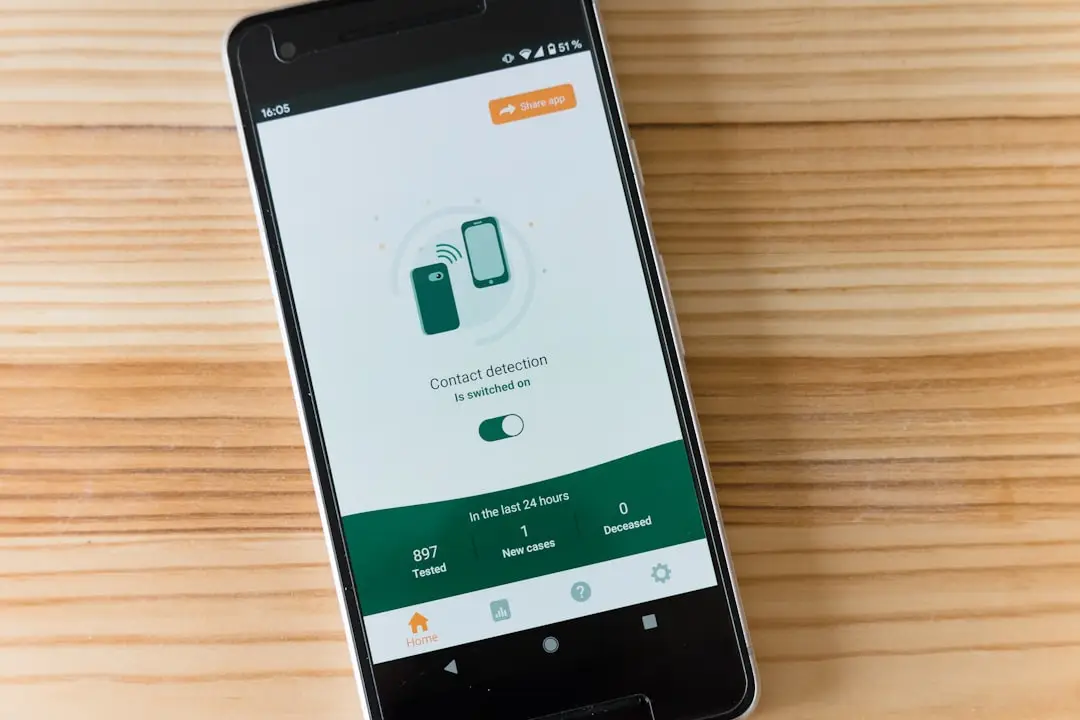In the world of business, referrals hold a unique and powerful position. They are not just a means of gaining new customers; they represent a form of social proof that can significantly influence purchasing decisions. When someone you trust recommends a product or service, it carries more weight than any advertisement.
This is because referrals tap into the innate human tendency to seek validation from peers. You may find that when a friend or colleague shares their positive experience with a brand, you are more inclined to explore it yourself. This phenomenon is rooted in the psychology of trust and relationships, making referrals an invaluable asset for any business.
Moreover, referrals often lead to higher conversion rates compared to traditional marketing methods. When you receive a recommendation, you are already predisposed to trust the source, which shortens the decision-making process. This means that businesses can not only acquire new customers more efficiently but also cultivate a loyal customer base.
As you consider your own strategies for growth, recognizing the power of referrals can be a game-changer. By fostering an environment where satisfied customers feel encouraged to share their experiences, you can create a sustainable cycle of growth that benefits both your business and your clientele.
Key Takeaways
- Referrals are a powerful tool for generating new business and building trust with potential customers.
- Recognize upselling opportunities by understanding your customers’ needs and offering additional products or services that complement their original purchase.
- Leverage referrals for upselling by asking satisfied customers to recommend additional products or services to their network.
- Building trust through referrals involves delivering exceptional customer service and consistently exceeding expectations.
- Create a seamless upselling process by providing personalized recommendations and making it easy for customers to add on to their purchase.
Recognizing Upselling Opportunities
Upselling is an art that requires keen observation and an understanding of customer needs. It involves presenting additional products or services that complement what a customer is already considering. To effectively identify upselling opportunities, you must first engage with your customers and listen to their needs.
This means paying attention to their preferences and pain points during interactions. For instance, if a customer expresses interest in a particular product, you can suggest related items that enhance their experience or solve additional problems they may have. Additionally, upselling is not merely about pushing more products; it’s about providing value.
You should aim to enhance the customer’s experience by offering solutions that genuinely meet their needs. This requires a deep understanding of your offerings and how they can benefit your customers. By positioning yourself as a knowledgeable resource, you can create an environment where customers feel comfortable exploring additional options.
When you recognize these opportunities, you not only increase your sales but also strengthen your relationship with your customers by demonstrating that you care about their overall satisfaction.
Leveraging Referrals for Upselling

Combining the power of referrals with upselling strategies can lead to remarkable results for your business. When a satisfied customer refers someone to you, they are essentially vouching for your credibility and the quality of your offerings. This creates an ideal scenario for upselling because the new customer arrives with a level of trust already established.
You can leverage this trust by presenting them with tailored recommendations that align with their needs and preferences. To effectively utilize referrals for upselling, consider implementing referral programs that reward both the referrer and the new customer. For example, when a current customer refers a friend, both parties could receive discounts or exclusive offers on complementary products.
This not only incentivizes your existing customers to spread the word but also encourages new customers to explore additional offerings right from the start. By creating a seamless connection between referrals and upselling, you can maximize the potential of each new lead while enhancing customer satisfaction.
Building Trust Through Referrals
Trust is the cornerstone of any successful business relationship, and referrals play a crucial role in establishing that trust. When customers refer others to your business, they are putting their reputation on the line, which speaks volumes about their confidence in your products or services. To build this trust, you must consistently deliver exceptional experiences that exceed expectations.
This means not only providing high-quality products but also ensuring excellent customer service at every touchpoint. Furthermore, actively engaging with your customers after they make a purchase can reinforce this trust. Follow-up communications, such as thank-you emails or satisfaction surveys, show that you value their feedback and are committed to their experience.
When customers feel appreciated and heard, they are more likely to refer others to your business. By fostering an environment of trust through referrals, you create a loyal customer base that is eager to share their positive experiences with friends and family.
Creating a Seamless Upselling Process
A seamless upselling process is essential for maximizing revenue without alienating customers. You want to ensure that any additional offers feel like natural extensions of their initial purchase rather than intrusive sales tactics. To achieve this, consider integrating upselling prompts into your customer journey at strategic points.
For instance, during the checkout process, you could suggest related items that complement what the customer is already buying. Moreover, training your sales team to recognize moments when upselling is appropriate can significantly enhance this process. They should be equipped with the knowledge to understand customer needs and present relevant options confidently.
By creating a culture where upselling is viewed as an opportunity to provide value rather than just a sales tactic, you can foster a more positive experience for your customers.
A seamless upselling process not only increases revenue but also enhances customer satisfaction by ensuring they receive tailored recommendations that genuinely benefit them.
Maximizing Revenue with Referral Programs

Unlocking the Power of Word-of-Mouth Marketing
Referral programs are a highly effective way to tap into the power of word-of-mouth marketing, while also increasing revenue through upselling opportunities. By incentivizing existing customers to refer new clients, you create a mutually beneficial situation where everyone wins. Consider implementing a structured referral program that rewards both the referrer and the new customer with discounts or exclusive offers on future purchases.
Maximizing Revenue through Active Promotion
To maximize revenue through these programs, it’s essential to promote them actively across various channels. Utilize email marketing campaigns, social media platforms, and even in-store signage to inform customers about the benefits of referring others. Additionally, make it easy for customers to share their referral links or codes with friends and family.
Simplifying the Referral Process
The more accessible you make the process, the more likely customers will participate, leading to increased sales and opportunities for upselling as new clients explore your offerings. By streamlining the referral process, you can encourage more customers to take part and reap the rewards of a successful referral program.
Tracking and Measuring Referral Success
To truly understand the impact of your referral strategies on upselling and overall revenue, tracking and measuring success is crucial. Implementing analytics tools can help you monitor key performance indicators (KPIs) such as referral conversion rates, average order value from referred customers, and overall revenue generated through referral programs. By analyzing this data, you can identify trends and areas for improvement in your referral strategy.
Additionally, gathering feedback from both referrers and referred customers can provide valuable insights into what works and what doesn’t. Consider conducting surveys or interviews to understand their experiences better and how they perceive your upselling efforts. This information can guide you in refining your approach and ensuring that both referrals and upselling initiatives align with customer expectations.
The Future of Referrals and Upselling
As technology continues to evolve, so too will the landscape of referrals and upselling strategies. The rise of social media platforms has transformed how people share recommendations, making it easier than ever for businesses to tap into this powerful marketing tool.
In the future, you may find that leveraging social proof through online reviews and testimonials becomes even more critical in driving referrals.
Moreover, advancements in data analytics will enable businesses to personalize their upselling efforts further. By analyzing customer behavior and preferences in real-time, you can present tailored recommendations that resonate with individual needs. This level of personalization will not only enhance the customer experience but also increase the likelihood of successful upsells.
In conclusion, understanding the dynamics of referrals and upselling is essential for any business looking to thrive in today’s competitive landscape. By recognizing the power of referrals, identifying upselling opportunities, building trust, creating seamless processes, maximizing revenue through referral programs, tracking success, and embracing future trends, you can position your business for sustained growth and success.
If you’re interested in exploring the connection between referrals and upselling opportunities, you might find valuable insights in a related article that discusses how business development strategies can enhance your referral networks. This article, titled “How Business Development Powers the Growth of Referral Networks,” delves into effective techniques for expanding your professional connections through strategic business development efforts. You can read more about it by visiting How Business Development Powers the Growth of Referral Networks. This resource is particularly useful for understanding the foundational strategies that can lead not only to increased referrals but also to potential upselling opportunities with existing clients.
FAQs
What is the connection between referrals and upselling opportunities?
Referrals can lead to upselling opportunities because satisfied customers are more likely to recommend a product or service to others, and those recommendations can open the door to additional sales or upgrades.
How do referrals contribute to upselling opportunities?
Referrals can contribute to upselling opportunities by creating a sense of trust and credibility, making it easier for salespeople to introduce additional products or services to the referred customer.
Why are referrals important for upselling?
Referrals are important for upselling because they provide a warm lead and a higher level of trust, making it easier to introduce and sell additional products or services to the referred customer.
What are some strategies for leveraging referrals to create upselling opportunities?
Some strategies for leveraging referrals to create upselling opportunities include offering incentives for referrals, providing exceptional customer service to encourage positive word-of-mouth, and actively seeking out referrals from satisfied customers.
How can businesses encourage referrals to maximize upselling opportunities?
Businesses can encourage referrals to maximize upselling opportunities by providing exceptional products and services, offering referral incentives, and actively engaging with customers to build strong relationships and encourage positive word-of-mouth.





